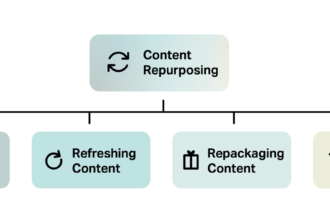The Role of DevOps in Nigerian Tech
Introduction
In Nigeria’s rapidly growing tech ecosystem, delivering software quickly and reliably is critical for businesses to stay competitive. DevOps, a methodology that bridges development and operations, has become a cornerstone for achieving this. At the heart of DevOps lies Continuous Integration and Continuous Deployment (CI/CD) pipelines, which automate and streamline software delivery processes. This blog explores how DevOps and CI/CD pipelines are transforming Nigerian tech by enabling faster, more reliable releases, with real-world applications and practical insights tailored to the local context.
What is DevOps and Why Does It Matter in Nigeria?
DevOps combines cultural philosophies, practices, and tools to enhance collaboration between development and operations teams. In Nigeria, where startups and enterprises alike face pressure to innovate rapidly—especially in sectors like FinTech, e-commerce, and healthcare—DevOps addresses key challenges:
- Speed to Market: Nigerian tech companies, such as Flutterwave and Paystack, need to roll out features quickly to meet customer demands. DevOps reduces delivery times by automating workflows.
- Reliability: Automated testing and deployment ensure stable releases, critical for maintaining user trust in high-stakes applications.
- Scalability: With Nigeria’s growing internet penetration (over 50% as of 2023), apps must handle traffic spikes, especially during events like Black Friday sales. DevOps enables dynamic scaling using cloud tools like AWS or Azure.
The Power of CI/CD Pipelines
CI/CD pipelines are automated workflows that integrate code changes, test them, and deploy them to production. They are the backbone of DevOps, enabling Nigerian tech teams to achieve:
Continuous Integration (CI)
- Frequent Code Integration: Developers merge code into a shared repository multiple times daily, with automated tests (unit, integration) catching bugs early.
- Improved Collaboration: In Nigeria, where remote and hybrid teams are common, CI ensures seamless code integration across distributed developers, reducing conflicts.
Continuous Deployment (CD)
- Automated Releases: Code passing CI tests is automatically deployed to production, enabling rapid feature rollouts. For example, a Nigerian FinTech app can push updates bi-weekly instead of quarterly.
- Rollback Capabilities: Automated rollback mechanisms minimize downtime if issues arise, crucial for maintaining user trust in apps like mobile banking platforms.
Real-World Impact in Nigeria
A notable example comes from a Nigerian digital technology company where a Lead DevOps Engineer implemented CI/CD pipelines for a high-traffic mobile app. By integrating tools like Jenkins, Docker, and Kubernetes, the company achieved:
- 70% reduction in deployment time: From hours to minutes.
- 40% fewer defects: Automated testing caught issues early.
- Bi-weekly feature rollouts: Previously quarterly, giving a competitive edge.
Key Components of CI/CD Pipelines in Nigerian Tech
To build effective CI/CD pipelines, Nigerian tech teams leverage tools and practices suited to local infrastructure and challenges:
1. Version Control
- Tool: Git (via GitHub, GitLab, or Bitbucket).
- Why It Matters: Maintains a single source of truth for code, critical for teams across Lagos, Abuja, or remote locations. It allows tracking changes and rolling back if needed.
- Local Tip: Use GitLab’s free tier for startups with limited budgets, common in Nigeria’s early-stage tech scene.
2. Automated Testing
- Tools: Selenium, JUnit, or pytest for unit, integration, and end-to-end tests.
- Why It Matters: Ensures code quality in Nigeria’s fast-paced development cycles, where manual testing is too slow. For example, e-commerce platforms like Jumia rely on automated tests to handle frequent updates.
- Local Tip: Prioritize lightweight testing frameworks to accommodate Nigeria’s variable internet connectivity.
3. Containerization and Orchestration
- Tools: Docker for containerizing apps, Kubernetes for orchestration.
- Why It Matters: Containers ensure consistent environments across development, testing, and production, vital for Nigeria’s diverse infrastructure (e.g., on-premises servers vs. cloud).
- Local Tip: Use Azure or AWS for orchestration, as they offer data centers closer to Nigeria (e.g., AWS’s Cape Town region), reducing latency.
4. Cloud Platforms
- Tools: AWS, Azure, Google Cloud Platform (GCP).
- Why It Matters: Cloud platforms enable scalability for Nigeria’s growing user base. For instance, a healthcare app can scale during peak usage (e.g., vaccination drives).
- Local Tip: Leverage free credits from AWS or Azure for startups to offset costs in Nigeria’s cost-sensitive market.
5. Monitoring and Logging
- Tools: Prometheus, Grafana, ELK Stack.
- Why It Matters: Real-time monitoring detects issues like server downtime, critical in Nigeria where power outages can disrupt services.
- Local Tip: Use lightweight monitoring tools to minimize data usage, given Nigeria’s high data costs.
Challenges in Nigeria and How DevOps Addresses Them
- Infrastructure Limitations: Unreliable power and internet connectivity can disrupt pipelines. Solution: Use cloud-native tools with offline caching and robust error handling.
- Skill Gaps: Nigeria’s tech talent pool is growing but faces a DevOps skills shortage. Solution: Platforms like DevOpsNigeria (founded 2023) offer training in CI/CD tools and practices.
- Cost Constraints: High cloud service costs can strain startups. Solution: Optimize pipelines with open-source tools like Jenkins and GitLab, widely adopted in Nigeria.
Dont miss: How to Trademark a Business Name in Nigeria: A Practical Step-by-Step Guide
Best Practices for Nigerian Tech Teams
- Start Small: Begin with a simple CI/CD pipeline (e.g., GitHub Actions for small teams) and scale as expertise grows.
- Invest in Training: Encourage certifications (e.g., AWS Certified DevOps Engineer) to build local expertise.
- Prioritize Security (DevSecOps): Integrate tools like Snyk for automated security scans, critical for Nigeria’s FinTech sector with strict compliance needs.
- Foster Collaboration: Use tools like Slack or Jira to align developers and operations teams, breaking silos common in traditional Nigerian IT setups.
- Monitor Performance: Use Prometheus and Grafana to track pipeline efficiency, ensuring reliability despite Nigeria’s infrastructure challenges.
Conclusion
DevOps, powered by CI/CD pipelines, is revolutionizing Nigeria’s tech industry by enabling faster, more reliable software releases. From FinTech to e-commerce, these practices help companies meet user demands while navigating local challenges like infrastructure and skill gaps. By adopting tools like Jenkins, Docker, and Kubernetes, and following best practices, Nigerian tech teams can build robust pipelines that drive innovation and competitiveness. Start small, train your team, and leverage Nigeria’s growing DevOps community to stay ahead in this dynamic ecosystem.
Call to Action
Ready to transform your software delivery? Explore DevOps training at platforms like DevOpsNigeria or start building a CI/CD pipeline with free tools like GitHub Actions. Join Nigeria’s DevOps revolution today!






